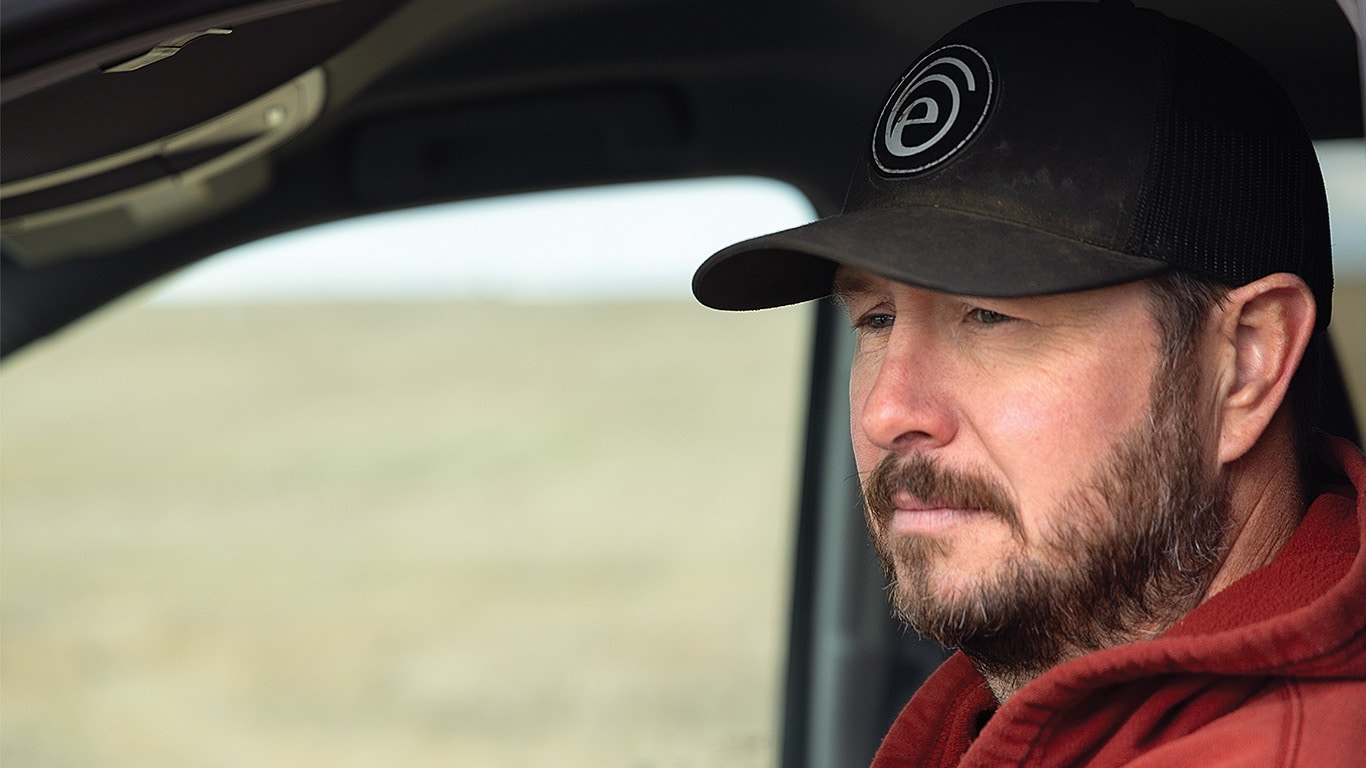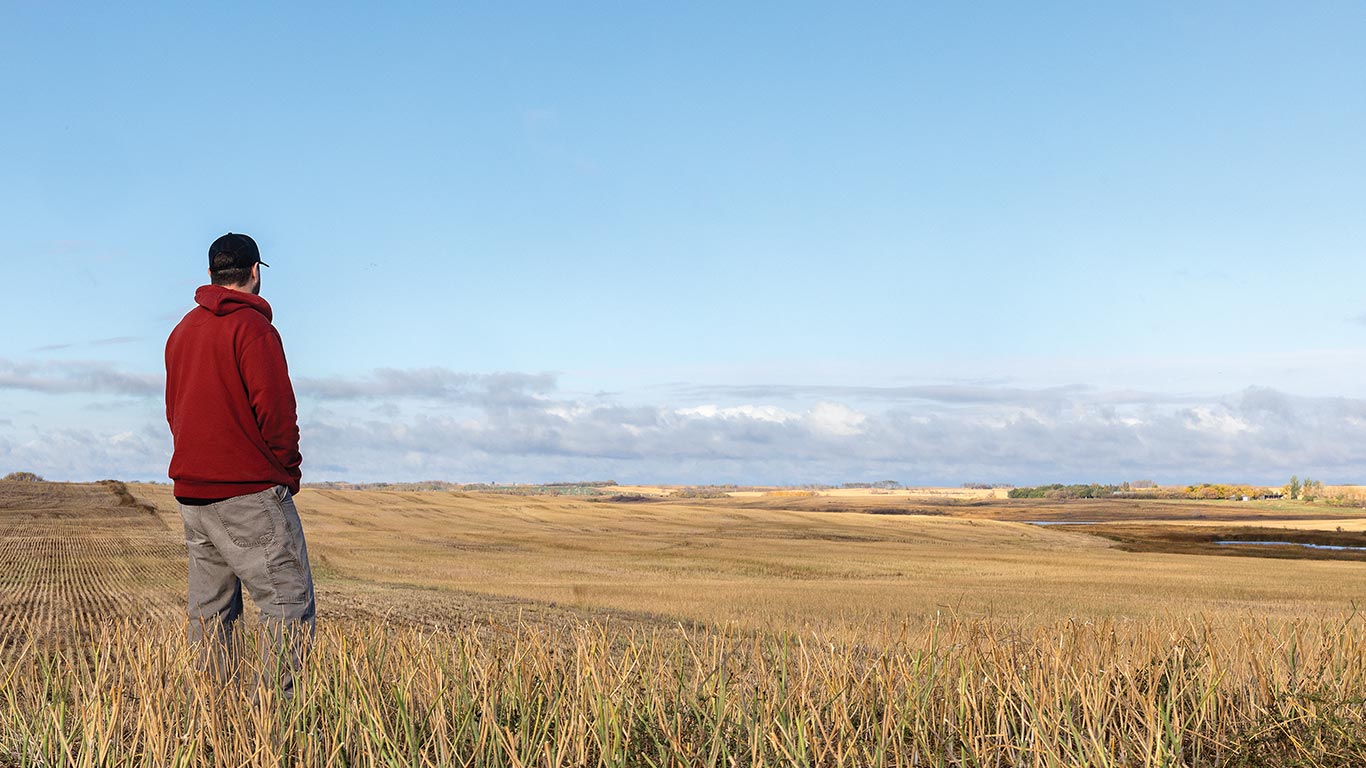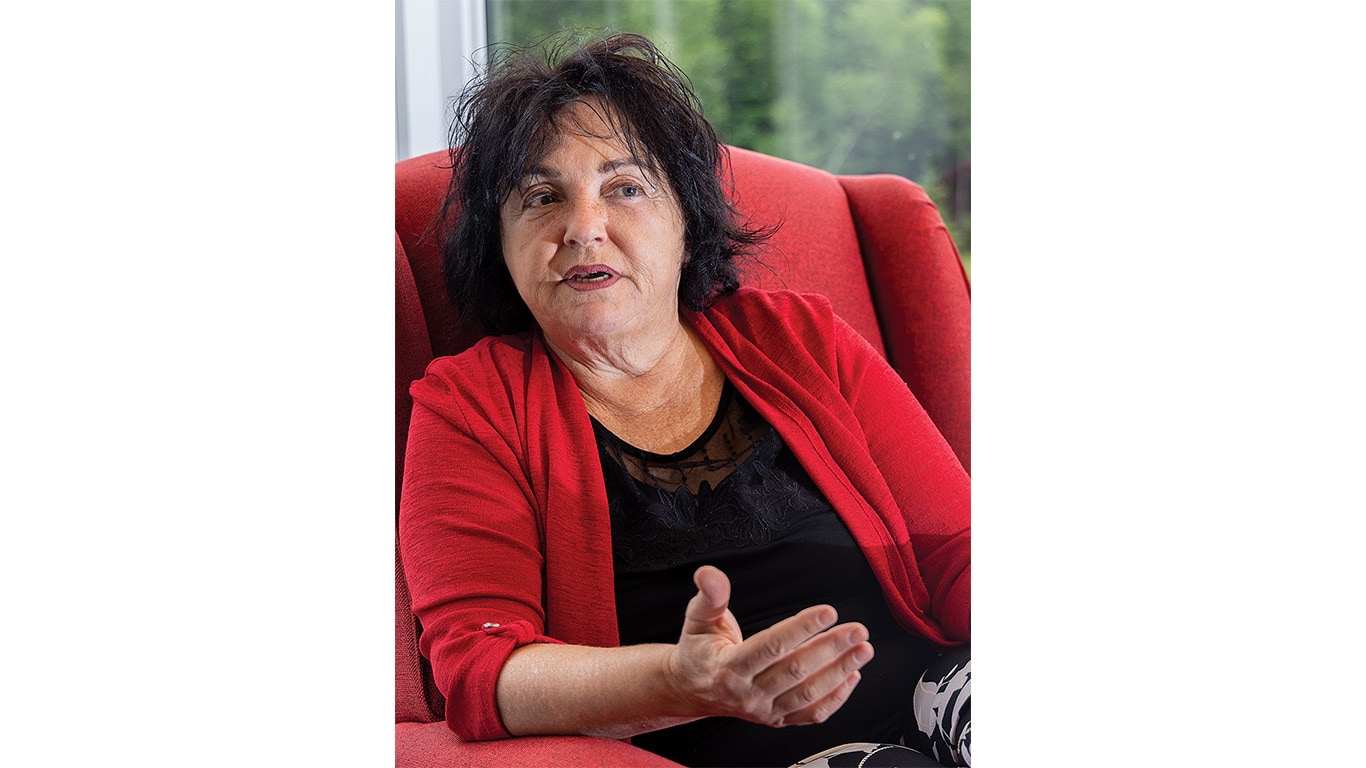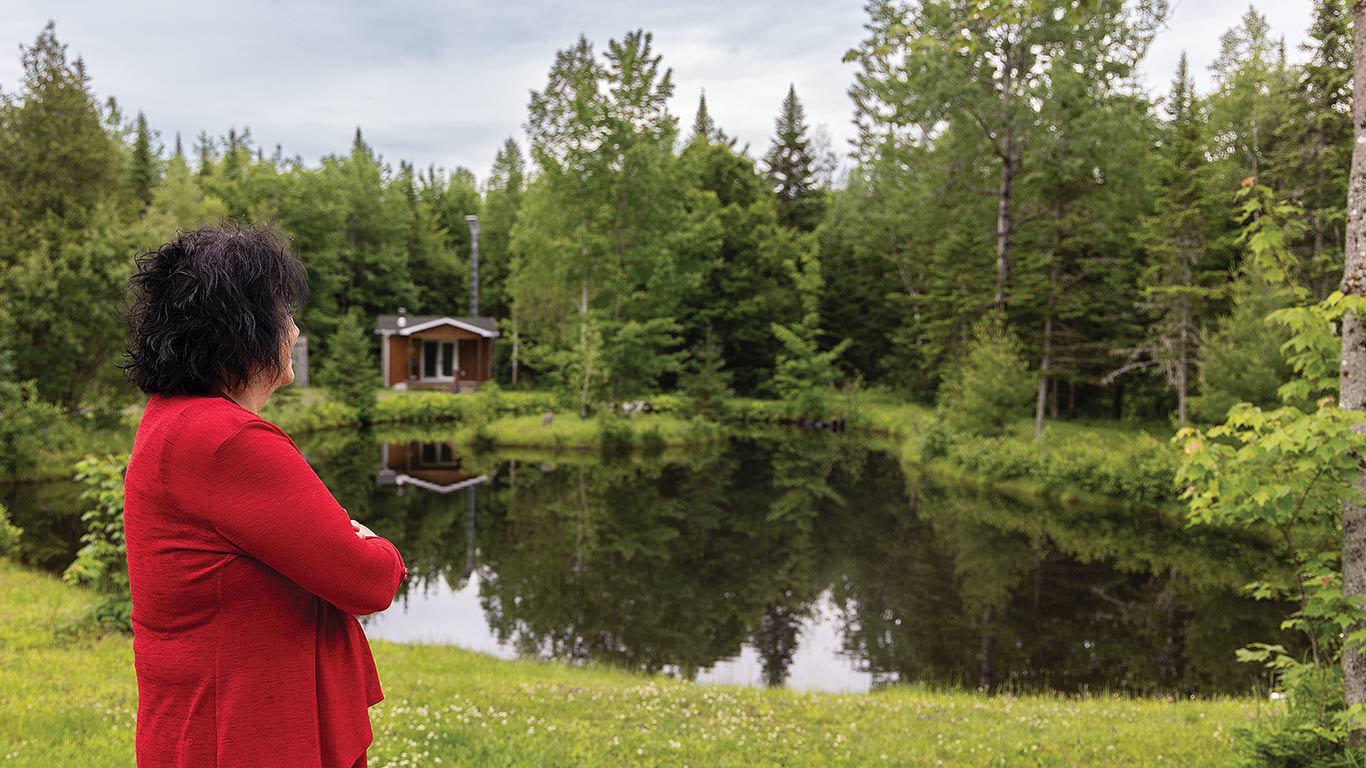Agriculture, Education September 01, 2025
Lonely, So Lonely
Establishing connections is vital to maintaining mental health.
by Lorne McClinton
We've never had so many ways to talk to each other. You can call, text, or video chat with family and friends no matter where they are in the world. Social media makes it possible to speak to thousands or even millions of complete strangers any time you wish. So why do so many surveys find farmers have never felt so alone?
"It's a paradox," says Pierrette Desrosiers, an occupational psychologist specializing in family farm businesses based in Saint-Joseph-de-Coleraine, Quebec. "We have all these means to interact with others but there is this enormous solitude. Just because we can text or call anyone, and post to our large tribe on social media doesn't mean we're communicating with each other. Too often it's just an illusion of communication because we so rarely connect; that's a huge difference."
Farming has always been a lonely profession. Even our imagery, the lone cowboy out on the vast range, the plowman breaking virgin prairie, glorifies it. Rural depopulation has made it worse. Today it's quite possible to go all day without seeing a single person. Some revel in the solitude, but for others it exacerbates anxiety and depression.
"You don't get into this livelihood because you want to socialize. It's a self-driven, self-motivated, get-things-done, entrepreneurial mindset. In our case we work together with my family as part of a team," says Lesley Kelly, author of the popular blog, "High Heels and Canola Fields." Lesley farms with her husband Matt near Watrous, Saskatchewan. The couple is well known for sharing their personal struggles with mental health and their work with the Do More Agriculture Foundation, a national group in Canada that champions farmers' mental health.
For better or worse, farmers spend a lot of time in their heads, Matt Kelly says. On one hand, you are living your passion doing a job you love. However, if your thoughts turn dark, you have a lot of time on your hands to brood.
"The cell phone has really opened up an avenue for connection," Matt says. "The coffee row of 20 years ago has gone virtual now. People are more willing to pick up their phone and call instead of sitting down face to face with a coffee."
But for many, the Covid era proved that virtual relationships only go so far. They're better than nothing but are thin gruel for those who crave in-person companionship.
Lack of in-person contact can make the winter months seem even longer, Lesley says. It's easy to hunker down in your pajamas and watch TV all day. But the couple knows that if they force themselves to get out of the house and spend time with friends it'll be good for them.
Above. Lesley and Matt Kelly have found it's good for their mental health to reach out and connect with others. Pierrette Desrosiers says it's a paradox that we have all kinds of technology to interact today but we have this enormous solitude. She says it creates an illusion of communication but there's no connection.
Lesley describes herself as an extroverted, socially-driven person who needs to be around people. That's why the couple deliberately chose to live in town instead of on the farm.
"Living at the farm would have caused me a lot of stress and isolation and I wouldn't have done very well," Lesley says. "We might move out to it someday, but for now, living in town is a better fit, especially with our children active in sports."
Life in rural communities has changed, too. It's shifted away from the days when the whole town would show up for a Tuesday night sports match. Now people have to do things differently to make connections. For Lesley, this means filling her winters with farming events and workshops to recharge her social battery.
But just interacting with groups of people doesn't mean you can't still be lonely. There is a big difference between spending time with casual acquaintances and the time shared with close friends you trust with your life.
"You have many friends that you can have a good time with," Lesley says. "But there'll only be a handful that you form deep connections with. Those are the ones that you can hold those deep conversations about life and purpose that nourish you."
People commonly say they are too busy to nourish friendships but Pierrette Desrosiers disputes that. As she notes, there are still 24 hours in a day.
Technology can help but it's also a two-edged sword. For example, you can use video chat apps to allow grandparents to get more face-time with their grandkids or set up nights out with friends. But on the other hand, it's common to see groups around restaurant tables engrossed with their phones. They're seated together, but everyone is dining alone. Whether you choose to use technology to build connections or isolate yourself further is ultimately up to you.
Honing your skills. Making friends and establishing close relationships is a skill. Like any skill, you can get better at it with practice.
"That's how I deal with my anxiety," Matt Kelly says. "I could live at the farm and be a hermit and just be uber focused on all the tasks that I think are a priority. But now I know I can break out of one of my spells by reaching out and making connections. I force myself to talk to people and get involved coaching sports right after harvest is done. Now I look forward to being involved in the community and giving back." ‡
Read More

AGRICULTURE
Deere & Dovetail Workwear
Brand collaboration addresses gap for women in ag.

AGRICULTURE, RURAL LIVING
Sanctuary of Second Chances
A place where Otis the bull is one of many works of heart.






